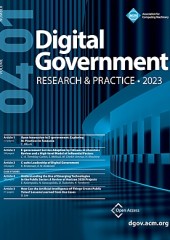The Right to Transparency in Public Governance Freedom of Information and the Use of Artificial Intelligence by Public Agencies
https://doi.org/10.1145/3632753
Extrait
What information should and can be transparent for Artificial Intelligence (AI) algorithms? In this article, Henrik Palmer Olsen and his co-authors examines socio-technical and legal perspectives on transparency in relation to algorithmic decision-making in public administration. The article explains that transparency of AI systems have different meanings across various technologies and that access to information from public bodies about AI systems in use, may be limited in a number of ways. Despite some first steps towards the establishment of standardized protocols, there exists, so far, no mature standard for documenting AI models. From a legal perspective, this article examines the applicable freedom of information (FOI) regimes across different jurisdictions, with a particular focus on Denmark and the EU. Despite notable differences, the authors find that the FOI regimes generally only grant access to existing documents, and that access to these documents can be denied on the basis of proprietary interests- and internal documents exemptions. The authors therefore ultimately conclude that the European data-protection framework (GDPR) and the proposed EU AI Act (now in its final phase before expected enactment in early 2024) – with their far-reaching duties to document the functioning of AI systems – provide promising new avenues for enhancing public information about AI-systems in use in public administration, beyond what is achievable from existing FOI law alone.
En savoir + (voir site de l'éditeur)
|
|
|
Soutien algorithmique à la prise de décision juridique (A-LEX) 01 septembre 2023 - 30 juin 2024 |
|
|

